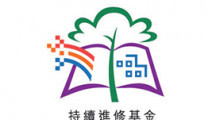
Languages
Discover Subjects in Languages
Languages
A new language to lead you CHANGE.
Languages Programmes
- Sort by
- Programme Title
The programme is equivalent to A1 level in the Common European Framework of Reference (CEFR).

This EdD programme helps you expand your knowledge and understanding of how education works, allows you to transform your own practice, and makes an original contribution to knowledge. This doctoral-level programme is a fantastic opportunity to study education at a deep level and relate this back to your own practice.
*See below for details.
The programme also provides a solid foundation for those who plan to study for a higher qualification in translation in the future: holders of the Postgraduate Certificate in Translation can articulate to Postgraduate Diploma in Translation with exemption from the first five modules of the Postgraduate Diploma in Translation programme offered by HKU SPACE.
2. Course fee: HK$21,300 to be paid on notification of acceptance.
*Fees are non-refundable and cannot be transferred.
This course covers the content of the A2 level in the Common European Framework of Reference (CEFR).
- Introduce students to simple phrases and sentences used in basic conversation, e.g.: introducing oneself, saying hello, reserving a hotel room, ordering food and drink, talking about your job, finding your way around town, talking about likes and dislikes and holidays.
- Give students the basic grammar and vocabulary needed for simple communication, e.g. present tense forms, adjectives, articles, basic modal verbs (e.g. poder and dever), and prepositions of place.
- Provide students with the techniques needed to listen with confidence to simplified, everyday dialogues when spoken clearly and slowly.
- Introduce students to some areas of Portuguese culture such as food and drink, greetings, festivals and places.
- Enable students to extract information from very simple written texts such as forms, menus and short, simplified articles. Also to write short simple postcards and fill in information on a form, e.g. hotel registration form.














